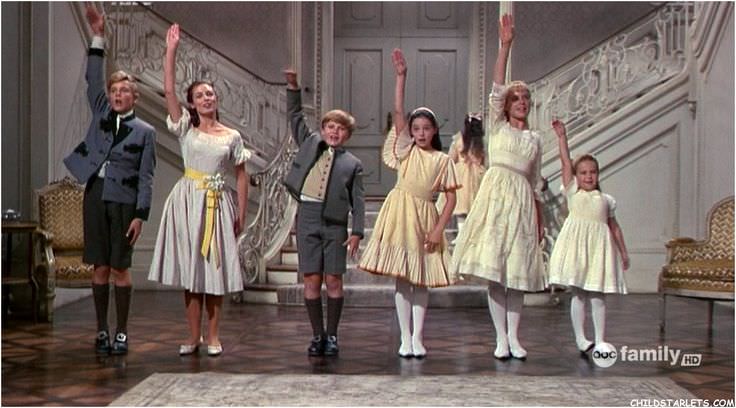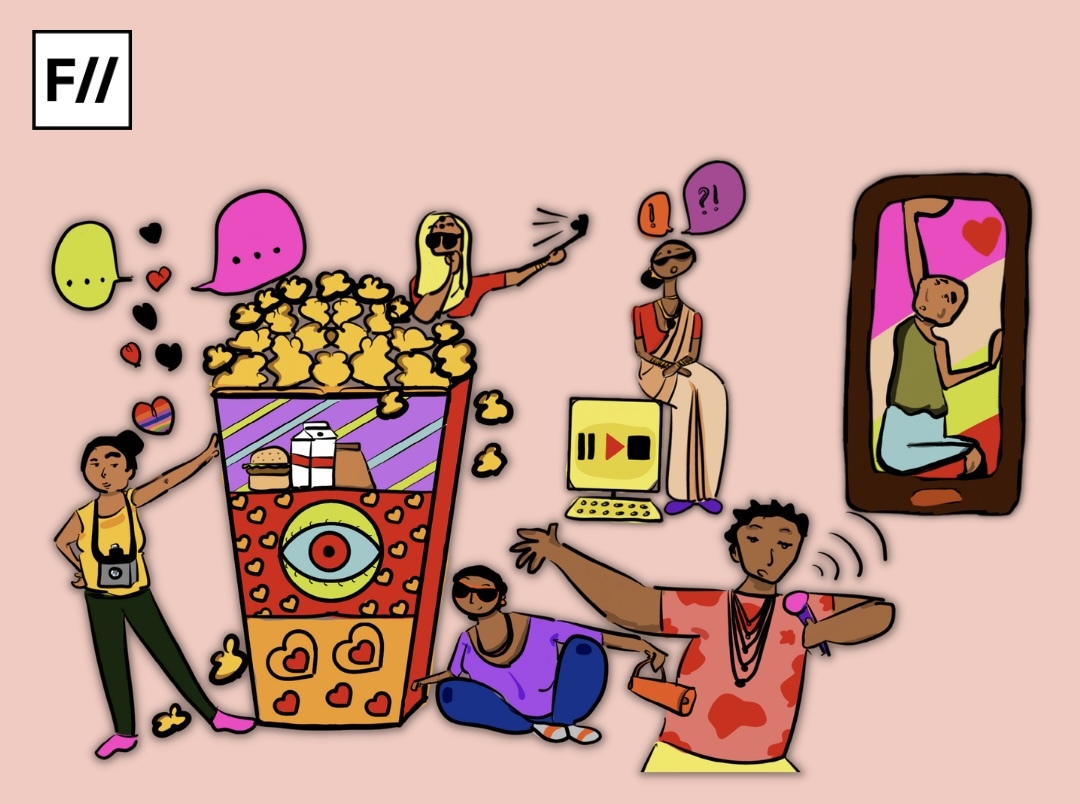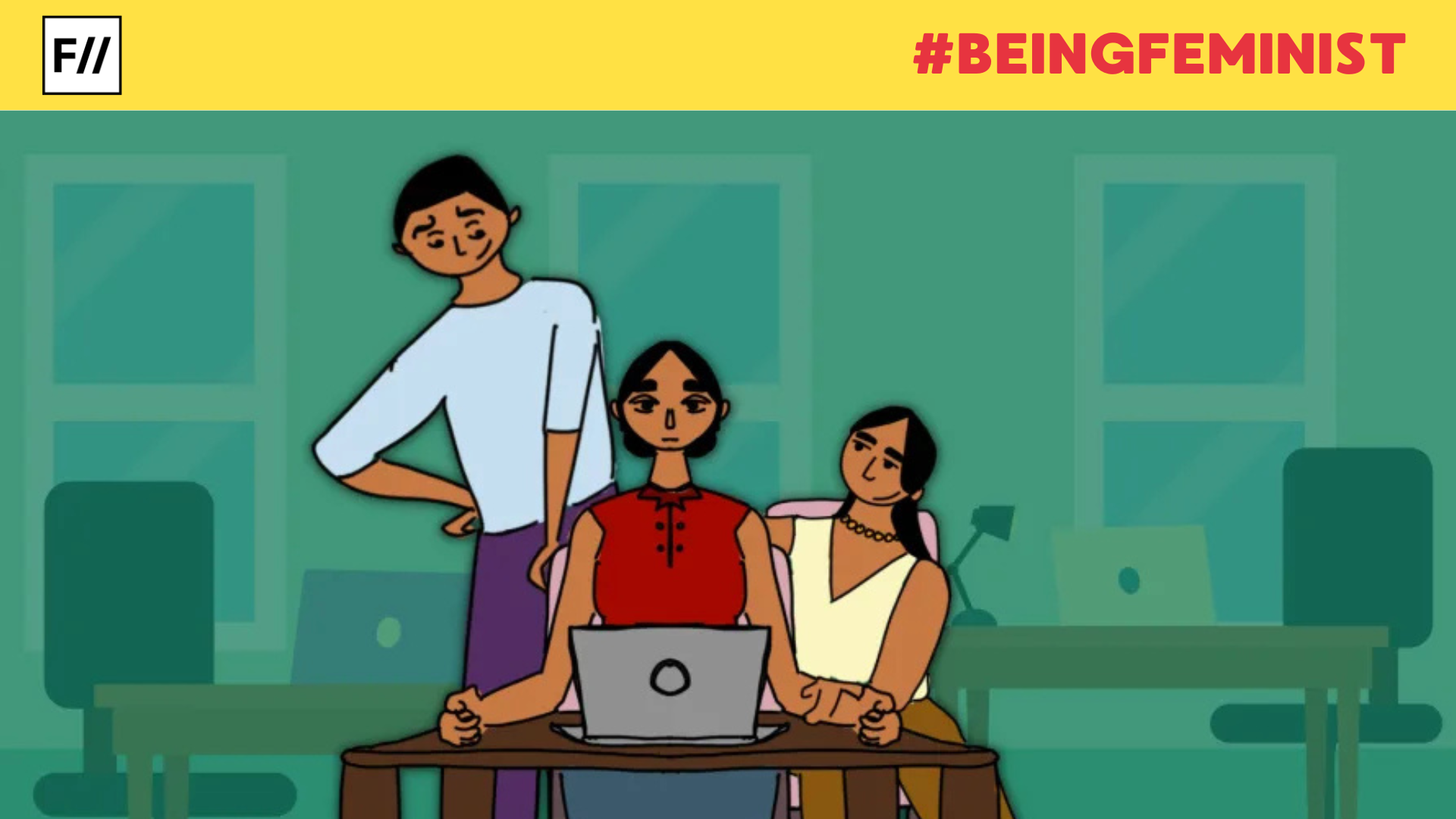It’s that time of the year again when I have the privilege of seeing you, my students, graduate and leave the university. For any teacher and especially a teacher of Gender Studies this is a bittersweet moment. It is gratifying to see that you are ready to embrace the complex world that awaits you – a world in which your choices as feminists will inevitably make for an extremely challenging, though I hope, an enriching life.
Over the two years, that I have taught you I know that you have acquired the tools of the trade. You understand the myriad ways in which the identities you embody, embed you in shifting axes of marginalisation in the larger society. You realise that being female can be disadvantageous at times, but being rural and without access to quality education, is far more disempowering.
As your teacher sometimes I can’t help but worry that the conceptual tools we have used together both inside and outside of the class won’t be enough for you to thrive outside. At the University we had each other and our warm networks. These safe spaces may not exist once you disperse to different corners of India and the world.
You know that the gender course is different from your other courses. I am explicit about my deployment of feminist pedagogy which I hope has encouraged you to articulate your thoughts. I have observed that you ask questions respectfully, but with candour, making for a classroom that is also a safe space allowing us to ask questions that are by turn painful, impossible, funny or deeply personal, but always political. You bring in your life experiences, analysing it incisively so we can generate knowledge together that de-centers me as a repository of all knowledge. I have learnt much from you and there have been moments when I have felt that you have been far braver than I could ever hope to be!
I wear labels of “man-hater“, “biased“, “angry“, “moody” and “feminazi” as the scars of battles, with a lot of pride.
Together we have discussed the ubiquity yet dehumanising nature of everyday sexual harassment on the streets. We have pondered over how to render visible our mothers’ labour at home because they are “mere housewives”. We have reflected on the long shadow of divorce that still exists in Indian society for women and how it has personally affected us. We have laughed and wept at your parents’ misguided attempts to convert you into being “straight”. We jointly share in the scepticism over arranged marriages and their happily ever afters, that Bollywood makes you scarf down quicker than chocolate ice-cream on a summer day! And over cups of tea we have wondered, half in jest and half seriously about whether it is possible to make a life and a livelihood by studying Gender!
You are among the brave few who choose to study gender in this program which attracts nearly 180 students. I know that this is a difficult choice for you given the reputation that gender studies teachers like me have built over the years by those who are discomfited by a young woman questioning caste, class, religious and gender privilege. I wear these labels of “man-hater“, “biased“, “angry“, “moody” and “feminazi” as the scars of these battles with pride. You have not allowed such rumours of my Dr. Jekyll/Mr. Hyde persona to influence you. I thank you for your loyalty and fortitude – for willing to fight with your roommates and friends who discouraged you from taking the gender course because this course will turn you into a “man-hater”.
And I especially thank some of the more unlikely ones among you, who I think have stumbled into this class, not because you were feminists to begin with, but because you were open. It’s only due to our joint efforts and careful reading of texts that we were able to convert you PK, from “not having an opinion” on honour killings to wanting to work on gender-based violence!
AS, you have transformed from a slightly confused woman from a deeply conservative Brahmin background toying with dissent, to countering your parents’ sexist and casteist beliefs by explaining Brahminical patriarchy to them. Watching Khamosh Pani together turned one of you into an Islamic Feminist, understanding that it was possible to be both a practicing Muslim and a feminist. Some of you may have initially felt a little bit out of place with the majority of class populated by cosmopolitan women, but without you, our conversations would be a diminished experience.
I treasure the conversations I had with you both as your academic mentor but also as your friend and sometimes as a counsellor, despite the fact that these were often emotionally fraught and exhausting experiences for us! From talking to you I have learnt that there’s a real dearth of strong female role models and this is perhaps the first time you have been given the freedom to ask any question you want! As I have said often “No question is stupid or ridiculous”, because if you work backwards there’s always an interesting reason why you are asking an apparently obvious question.
I have surmised that you have repeatedly made yourself vulnerable repeatedly because I have also shared my life’s journey with you. But it wasn’t always like this you know. When I first started teaching at 27, I was wary. I maintained strict boundaries with students, policing them with a cold professionalism. I very rarely let a student into my private space. Ten years later, I have learnt a lot – from life and from the classroom. I realise that my approach was antithetical to the basic philosophy of feminist pedagogy.
So now I tell you – don’t marry at 23. I did. It was not a good idea. Your sense of self is still forming and you can easily be moulded into the image of what your partner, his parents, your parents, extended family, essentially what everyone else wants you to be. First be the best version of yourself that you can be. That you want to be. Yes we are all work in progress, but there will come a time when you will sense that you like the person you have become, the values you embody are important leaving you with an intact ethical compass. This will hold you in good stead when you take one of the most significant decisions of your life – finding an equal partnership.
I have often been advised by well-meaning colleagues to not encourage you to interact informally with me. They tell me that this emotional labour is neither recognised within academia, nor is it rewarded. Many of my contemporaries- female academic colleagues around the world are given more duties associated with pastoral care under the (mistaken) assumption that since we are women, we must be “naturally nurturing”.
This is a fallacy – some of us resent this and do not wish to be in the position of handing out tissues to a weeping student. This is understandable and a choice that needs to be respected. However it’s a double bind for us- on the one hand we are seen as harsh for not comforting you, on the other hand if we do, that labour is neither acknowledged nor valued in career progression. And critically for us it takes away time from activities and outputs that counts towards progression – peer-reviewed scholarship.
Many of my female colleagues are given duties with pastoral care since women are “naturally nurturing”.
So why do I and so many of my female colleagues in India and elsewhere still continue to do this? For us, our careers are not just mere vocations – if we are to live authentic lives, true to both our disciplinary training and our ethical moorings, we need to be vested in feminist praxis both inside and outside our classrooms. Therefore when the year ends and you come and thank us not for teaching the subject but for believing in you, when no one did, for being a source of intangible strength, it validates our academic and emotional selves.
But the real litmus test of our success is when you make difficult but correct choices as one of you did two years ago by rejecting a proposal from a man who demanded that your entire family go through genetic screening because your brother is dyslexic. This and other choices you make and will make in the future fill my heart with hope at a time when gang rapes and savage attacks on women compete for sound bites. This is the time of the year that I return home with a spring in my step. And for that I can only thank you, my students. You help me retain my sanity.
It’s not a perfect world and I know your lives will be difficult for many of you are still emergent feminists. But you can only gather more strength to resist as you pile on the years and more life experience. Until then, farewell.
“I flit. I float. I fleety flee. I fly. The sun has gone to bed and so must I. So long Farewell”. (Courtesy: The Sound of Music, 1965).
Featured Image Credit: childstarlets.com
About the author(s)
Sreeparna Chattopadhyay has a Ph.D. in Cultural Anthropology from Brown University with research interests in gender and its intersections with health, education family and the law. She is an independent researcher.





Thank you for being a source of intangible strength at the campus and otherwise for me and for so many of us! Yes the world outside is challenging and cruel at times but we continue to make choices that best suit us!